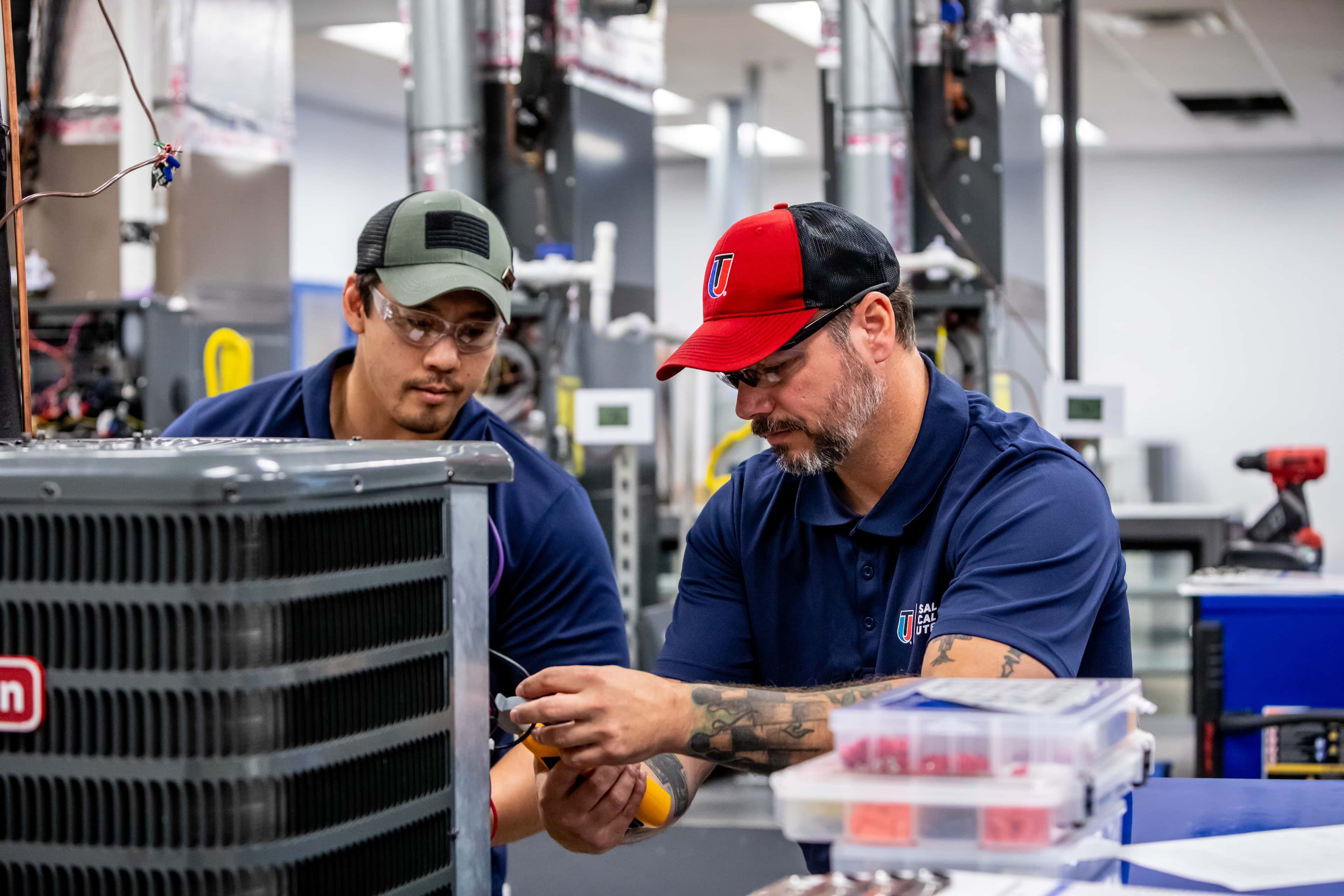Air quality might not be the first thing you think about when it comes to HVAC systems, but it should be.
Clean air matters for your health, and HVACR technicians play a key role in maintaining indoor air quality.
If you’re someone who likes fixing things, working with tools, and wants to become a hands-on professional with real-world impact, this career path could be a strong fit.
In this post, we’ll break down how HVAC systems impact indoor air quality, why it matters and how Universal Technical Institute (UTI) can help you get the training needed to pursue a role in the field after graduation.1

What Is Indoor Air Quality?
Indoor air quality, or IAQ, refers to how clean and safe the air is inside buildings. Dust, mold, chemicals, smoke and poor ventilation all affect air quality. These things can lead to health problems like asthma, headaches and fatigue — especially in schools, offices or homes that don’t get good airflow.
HVAC systems play a major role in controlling IAQ. They do more than heat or cool a space; they also move air, trap pollutants and help manage humidity.
Read: HVACR System Components: Your Go-To Guide
How HVAC Systems Affect Indoor Air Quality
Ventilation and airflow
HVAC systems pull in outdoor air, filter it and push it through ducts to every room. If airflow is weak or blocked, stale air builds up. Poor ventilation can trap allergens or germs inside.
Filtration and air cleaning

Filters help remove particles like dust, pollen and pet dander. Some systems use advanced filters or UV light to help clean the air even more. Techs often upgrade or replace filters to improve indoor air quality.
Humidity control
Too much moisture can lead to mold. Too little can dry out skin and lungs. HVAC systems use evaporator coils and drain pans to control humidity levels, keeping buildings comfortable and safe.
Read: Essential HVACR Tools for Today’s Technicians
Why Technicians Need To Understand Air Quality
Good air quality is part of system performance. HVAC techs inspect ductwork, clean filters, check airflow and look for moisture problems. Understanding these details helps techs provide better service, and it helps make a real impact on people’s health and comfort.
Want to learn more about what HVACR techs do day to day? Check out this article.
Hands-On HVACR Career Training

Our 9-10 month HVACR training program teaches students how systems work, how to find problems fast and how to make real-world fixes. You can train with industry-aligned tools and learn on systems like the ones you can see in homes, businesses and hospitals.
Our hands-on training also prepares graduates to test for certifications like EPA Section 608, which is required to handle refrigerants — another key part of air quality control.
Read: How To Get an HVACR Certification
Train To Become an HVACR Technician!
Clean air matters, and HVACR techs help make it happen. Our HVACR program enables students to build the skills needed to pursue this important work with confidence after graduation. Our program was designed to be completed in under a year.
To learn more, call an Admissions Representative at 1-800-834-7308 or get started online.
Universal Technical Institute of Illinois, Inc. is approved by the Division of Private Business and Vocational Schools of the Illinois Board of Higher Education.

